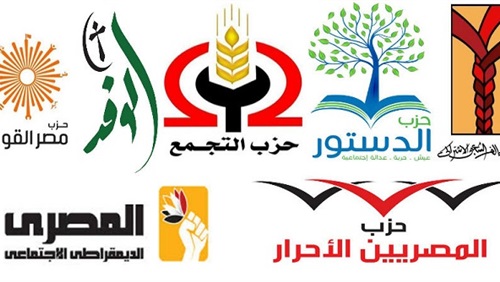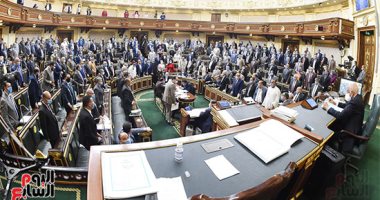Monday July , 6 , 2020
The forum for Development and Human Rights Dialogueon Monday released a study entitled “Map of possible party participation for the 2020 Senate elections”
The study drew attention to the fact that various political forces and parties have announced their orientation towards participating in the electoral process of the Senate, and this was reflected in the start of a large number of party candidates applying to the National Electoral Commission with their nomination papers, not to mention the start of the parties submitting the lists to be contested.
The study stated that the areas of party consensus and understanding about the competition in the Senate elections will be the most important, especially since the experience of party alliances in the 2015 parliament has achieved an unprecedented positive return, even one of the most prominent political phenomena in the 2015 elections, and added more vitality to the electoral process.
The study addressed several important themes in the map of possible party participation for the upcoming Senate elections:
Party movement
The study showed that the elections of the sheiks are held in a state of the partisan movement, where the political arena is currently witnessing serious movements by parties to form electoral alliances that will enable them to move in the street and put their program to citizens who will have to choose according to their convictions in the senate elections to be held on August 11 and 12 next year with a system that combines the absolute and individual list, which contributes to resolving the stalemate in party life, and expands the representation of the opposition in the legislative system
It is worth mentioning that the executive branch is pushing towards activating party life in Egypt, and this was reflected in the statements made by the head of state in early January, when he suggested to the political parties and forces to agree among themselves to integrate into 5 major entities that form different currents, to break the deadlock and enrich political life, which was welcomed by various political forces in different directions and political directions.
The study also showed that political parties in Egypt witnessed an unprecedented consensus between opposition parties and parties supporting power in 2020, resulting in the so-called “National Dialogue Sessions” that began in February 2020, comprising 10 parties including (Future of Watan – Reform and Development – Justice – Egyptian Social Democracy – Conservatives – Delegation – Republican People – Tomorrow – Assembly – Congress).
It also noted the success of national dialogue sessions and party coordination dialogues that brought together a wide range of political forces, and the impact of the agreement among its members on the importance of participating in the Senate elections.
Projected participation map
The study showed that based on the electoral alliances witnessed in the parliamentary elections in 2015, and in light of the party interactions that have taken place in the political arena over the past months, three expected party alliances can be referred to in the Senate elections (list “Support Egypt”, list of “Club of Constitutional Parties”, list of “Alliance of Egyptian Parties”).
With regard to theNour Party, the study also drew attention to the fact that although the Nour Party refused to hold the Senate elections on an absolute list system and supported the proportional list, there are growing opportunities for the party to participate in the Senate ballot in the “Support of Egypt” coalition or an independent list.
Stream of independents and women:
A large number of nonparties erst party figures are expected to participate in the 2020 Senate elections, where the Senate Election Regulation Act 141 of 2020 stipulates that about 100 members should be elected by the individual election system.
It is also expected that a large number of women will run in the electoral process as recent constitutional amendments have ensured better representation of women in parliamentary life, whether nominated or voted, and the law governing the Senate vote stipulates that there should be 3 women if the list has 15 members, and this number reaches 7 women once the list reaches 35 candidates.
The study concluded by saying that there have been many changes in the Egyptian political arena on the eve of the 2014 Egyptian presidential elections, which saw the return of the Shura Council under the constitutional amendments 2019 under the name of “Senate”, which is likely to enhance the presence of new party actors who have emerged in recent years, and achieved remarkable successes in the Egyptian street such as the Future of Watan party compared to traditional political forces.







